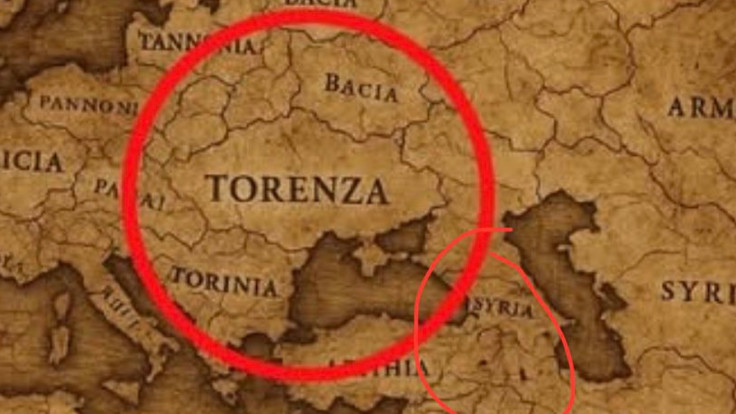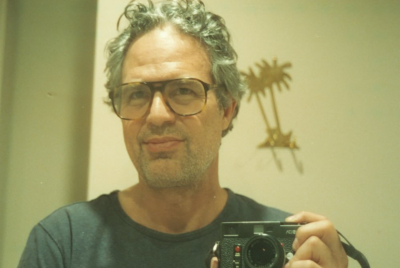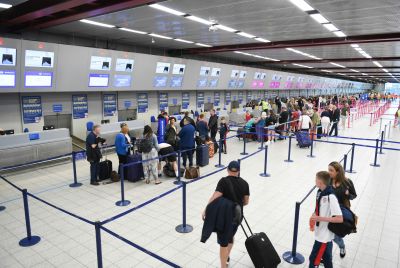Internet Baffled by 'Torenza' Map: Does This Ancient Book Prove This 'Lost Civilisation' Once Existed Near Syria?
Is the 'Lost Civilisation' for real, or is Torenza simply another rumour created online?

The digital world is currently alight with debate over a baffling artefact: the 'Torenza' map. Found within the pages of an antique book, this peculiar document has sparked wild speculation.
Could this map offer genuine evidence that a 'lost civilisation' once flourished in the region surrounding modern-day Syria?
Torenza - Truth or Internet Tale?
The enigmatic term 'Torenza' is now circulating widely on the internet, accompanied by suggestions that it represents a mighty civilisation that thrived before the Christian era. People online are spreading dramatic accounts of a forgotten civilisation that supposedly disappeared millennia ago and has now re-emerged.
However, do these remarkable assertions hold any basis in fact, or is Torenza simply another rumour created online?
The whole affair captured worldwide notice after a widely shared video featured a female passenger who landed at New York's JFK Airport, supposedly possessing a passport issued by 'Torenza'.
Authorities at JFK International Airport were left baffled when a woman arriving from Tokyo presented a passport issued by a nation called Torenza, a country that, according to all known records, maps, and databases, simply does not exist. pic.twitter.com/TLsxhIyHjs
— Politicia (@Politicia_09) October 11, 2025
At JFK Airport, a woman displayed a passport from a fictitious country called "Torenza." The passport contained a biometric chip, a hologram, and a fake visa. The video is AI-generated and fake. pic.twitter.com/XzggJGl1JX
— 𝐕𝐢𝐬𝐡𝐚𝐥 (@vishalthkurhere) October 19, 2025
Border officials, puzzled by this nation that does not appear on any map, reportedly informed her that no such location existed. Despite the official's firm denial, the woman maintained the reality of Torenza — and that is precisely when the digital sphere's obsession erupted.
Origin of the Torenza Theory
After the airport video went viral, various conspiracy theories and supposed 'historical discoveries' started spreading quickly on the internet. Certain online posts, notably one shared broadly by a page named Explorer World, suggested that archaeologists had unearthed stone slabs from around 200 B.C.
These inscriptions supposedly spoke of Torenza as a prosperous realm that conducted commerce with the Romans before its sudden vanishing from the historical record.
Other widely circulated posts took the story even further, proposing that Torenza had appeared twice before — once in 1954 and subsequently in 2025 — which intensified speculation around time travel, alternate realities, and forgotten cultures.
Me too!! My husband and I just watched that a couple weeks ago 😂
— JenniferCarolinaGirl (@Jennife34195249) October 19, 2025
Got something else for you with this.. Syria is near Torenza according to this snapshot I took of somebody posting on FB.. but did y’all see this book I posted in TG chat? This is a super interesting map in this… pic.twitter.com/EmWDhTCenM
These assertions described Torenza as a previously successful community that had somehow managed to slip out of conventional history.
Those who support the theory argue that powerful historical states, such as the Hittites and Troy, were dismissed as mere fables until archaeological digs verified their existence. They suggest that Torenza could potentially have a similar outcome.
Nevertheless, experts are advising people to be wary — and highlighting the complete absence of reliable information as a significant concern.
Experts Denounce the Torenza Story
Notwithstanding the engaging storyline, no dependable historical or archaeological proof exists to suggest a civilisation called Torenza was real.
Reputable historians and experts in archaeology reached by news agencies such as the BBC and Associated Press have confirmed that no scholarly work, dig findings, or authenticated artefacts make any reference to this location.
The assertions concerning the 200 B.C. stone slabs that supposedly mentioned Torenza have also been proven false. There is no documentation of these objects being found, analysed, or exhibited in any recognised gallery or educational institution.
Moreover, no ancient charts, Roman commercial documents, or historical literature ever makes mention of a realm bearing that moniker.
Professionals in the field of geopolitics further point out that the account of a woman showing a Torenza passport at JFK has never been verified by official government or border control departments.
The absence of any public statement or official announcement highly indicates that this event was made up or intentionally staged to gain widespread online notice.
Fact-checking bodies highlight that the tale mirrors a standard structure observed in earlier internet deceptions — startling assertions, unverifiable evidence, and dramatic elements crafted to attract people's attention.
Just like imaginary places such as 'Taured' and 'Atlantis', the Torenza narrative seems to be another inventive creation instead of a verifiable historical fact.
Why Narratives Like Torenza Thrive
The quick spread of the Torenza legend shows how rapidly false information can travel through digital platforms, particularly when it blends intrigue, ancient times, and imagination.
As mentioned in a report from Zoom Bangla, people are fascinated by concepts like lost societies, concealed pasts, and mysteries that defy explanation — even if the supporting facts are weak or completely missing.
Experts suggest the Torenza tale also capitalises on a deep, shared cultural interest in vanished places such as Atlantis or Lemuria. These kinds of fables frequently re-emerge during periods of instability, when audiences are more open to different accounts regarding human history.
In this particular scenario, the complete lack of any archaeological or historical documentation isn't simply a detail that's missing — it is the core issue itself.
With no tangible proof, scholarly examinations, or official verification, Torenza remains nothing more than a fictional creation stemming from social media fantasy rather than an actual part of the past.
Conclusion: Fiction, Not Fact
Ultimately, the compelling tale of Torenza, the supposed 'lost civilisation' near Syria, illustrates the immense power of the modern internet to generate and spread sophisticated myths.
While the story offers a thrilling glimpse into the idea of forgotten worlds, the evidence is clear: the viral video was a fabrication, and the map appears to be without an official historical basis.
For now, Torenza remains firmly fixed in the realm of digital fantasy, inspiring debate rather than rewriting the history books.
© Copyright IBTimes 2025. All rights reserved.






















